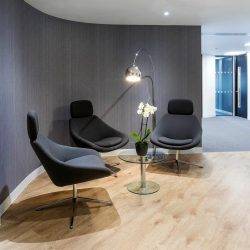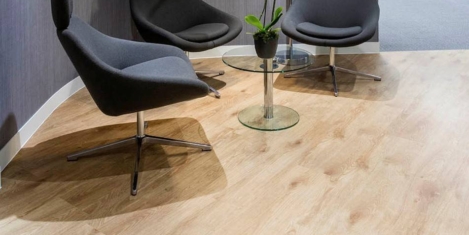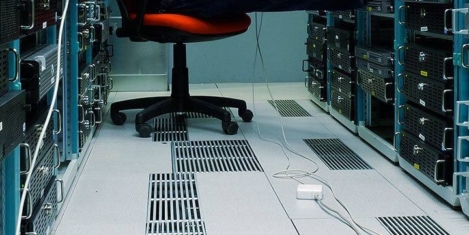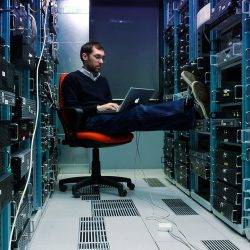February 21, 2017
Older workers increasingly marginalised at work despite their growing numbers 0
 Older workers are at risk of being marginalised in the workplace according to a new survey of office workers from workplace consultants Peldon Rose, which claims that there are significant differences in the wellbeing, attitudes and motivations of the workplace’s oldest and youngest employees. The over 50s now account for more than 30 percent of the UK’s working population (9.4million people), but according to the study older workers are the least content of all employees with less than a quarter (23 percent) of the 55+ age group feeling appreciated by their company and 80 percent suffering from or having suffered from workplace stress. In contrast, the workplace’s newest recruits, the under 25 year olds, are the office’s most positive employees with over half (55 percent) feeling appreciated by their company and 60 percent – the lowest of all age groups – suffering or having suffered from workplace stress.
Older workers are at risk of being marginalised in the workplace according to a new survey of office workers from workplace consultants Peldon Rose, which claims that there are significant differences in the wellbeing, attitudes and motivations of the workplace’s oldest and youngest employees. The over 50s now account for more than 30 percent of the UK’s working population (9.4million people), but according to the study older workers are the least content of all employees with less than a quarter (23 percent) of the 55+ age group feeling appreciated by their company and 80 percent suffering from or having suffered from workplace stress. In contrast, the workplace’s newest recruits, the under 25 year olds, are the office’s most positive employees with over half (55 percent) feeling appreciated by their company and 60 percent – the lowest of all age groups – suffering or having suffered from workplace stress.

















 The more recent employment figures for London suggest that until the terms of Brexit are known and put in motion, the jobs market will remain cautious. This is according to the latest Morgan McKinley London Employment Monitor which found that despite an 81 percent increase in jobs available and an 83 percent increase in professionals seeking jobs; compared to a 115 percent increase in jobs this time last year, the 2017 spike was muted in comparison. The 83 percent increase in job seekers month-on-month is coupled with a 29 percent decrease, year-on-year. Contributing to the decrease is the trickling off of non-British EU nationals working in the City, who comprise up to 10 percent of its workforce. In a post-Brexit survey of professionals conducted by Morgan McKinley, these individuals reported either moving abroad, or considering leaving London because of Brexit.
The more recent employment figures for London suggest that until the terms of Brexit are known and put in motion, the jobs market will remain cautious. This is according to the latest Morgan McKinley London Employment Monitor which found that despite an 81 percent increase in jobs available and an 83 percent increase in professionals seeking jobs; compared to a 115 percent increase in jobs this time last year, the 2017 spike was muted in comparison. The 83 percent increase in job seekers month-on-month is coupled with a 29 percent decrease, year-on-year. Contributing to the decrease is the trickling off of non-British EU nationals working in the City, who comprise up to 10 percent of its workforce. In a post-Brexit survey of professionals conducted by Morgan McKinley, these individuals reported either moving abroad, or considering leaving London because of Brexit.




 With the UK facing at best, very slow growth, or even shrinkage, of the working population, future changes to migration levels into the UK due to Brexit could exacerbate the financial stresses and strains caused by the UK’s aging workforce. This is according to the
With the UK facing at best, very slow growth, or even shrinkage, of the working population, future changes to migration levels into the UK due to Brexit could exacerbate the financial stresses and strains caused by the UK’s aging workforce. This is according to the 









February 13, 2017
Neuroscience can function as a management tool for personal development 0
by Mike James • Comment, Workplace
(more…)